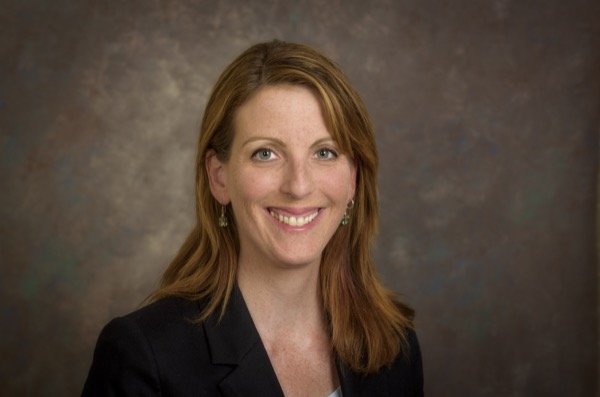
Scholarly Editions award
NEH grant to support research on 17th century feminist nun
12:52 p.m., Sept. 2, 2015--Arcangela Tarabotti, a 17th century nun who wrote and published extensively about the subjugation of women and condemned the practice of forcing girls into convents, is considered an early feminist who is best known today for her secular writing.
But Tarabotti also wrote about religion, and Meredith Ray, associate professor of Italian at the University of Delaware, hopes a new translation of the nun’s devotional works will give scholars an additional perspective on her life and her writing.
Research Stories
Chronic wounds
Prof. Heck's legacy
Ray, who also teaches courses in women and gender studies, and her longtime collaborator, Lynn Lara Westwater of George Washington University, have received a grant from the National Endowment for the Humanities (NEH) to support their work on the book.
“She [Tarabotti] is truly an amazing figure, and we were so thrilled to have the NEH recognize that,” said Ray, who has collaborated with Westwater for almost two decades. “Ironically, although she was a nun, the least studied aspect of her writing has been her devotional work. With this grant, we’re going to translate and contextualize those writings, and we hope to fill in some of this missing piece of her.”
The $190,000 grant begins in January, when Ray and Westwater plan to conduct some archival research in Venice to learn more about Tarabotti and then begin work on the translation of selected writings. The resulting book is to be part of the series “The Other Voice in Early Modern Europe,” now co-published by Iter Academic Press and the Arizona Center for Medieval and Renaissance Studies.
Tarabotti was not well-known until the last few decades, Ray said, but she is now studied in a range of disciplines, from political science to women and gender studies.
Forced into a convent in Venice, where she spent the rest of her life, she was able to educate herself and become a prolific writer on a variety of subjects.
Surprisingly, she was able to have much of her work published, a rarity for a woman and especially for a nun, Ray said.
Tarabotti’s first work, Convent Paradise, was a religious work, and it’s believed that she used the more conventional subject matter to become known as a writer and to make inroads into publishing.
“She chose something that would be more acceptable so that she could get support and permission to publish,” Ray said, adding that Tarabotti’s work does not simply praise religious life. Her point was that such a life can be paradise if a person chooses it but not if she is forced into it.
Tarabotti also wrote such works as Paternal Tyranny and The Convent Hell, both published after her death.
Ray and Westwater also plan to study a shorter work in which Tarabotti mourns the death of one of her few friends in the convent, a truly religious woman named Regina Donà. Those writings “explore themes about friendship and faith,” Ray said.
According to the NEH, its Scholarly Editions and Translations grants support the preparation of editions and translations of pre-existing texts and documents of value to the humanities that are currently inaccessible or available in inadequate editions. Ray said that description reflects a goal that she and Westwater have.
“We hope to make Tarabotti better known and her writings more accessible,” she said. “We’d like to see her studied and taught more widely.”
Ray and Westwater have also received a $20,000 grant from the Gladys Krieble Delmas Foundation that will support their initial archival work in Venice.
Article by Ann Manser
Photo by Kathy F. Atkinson








